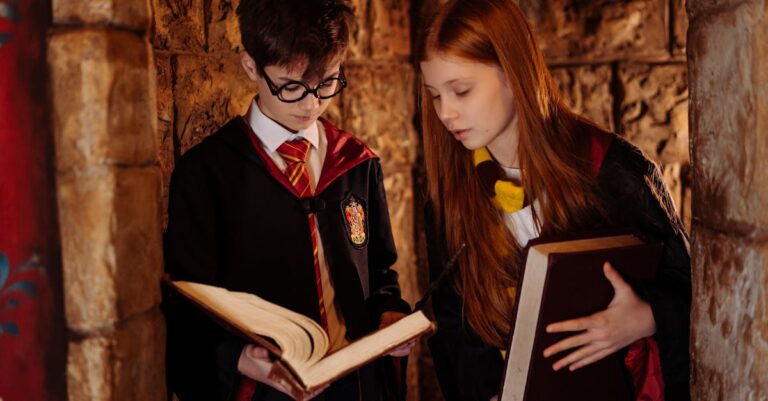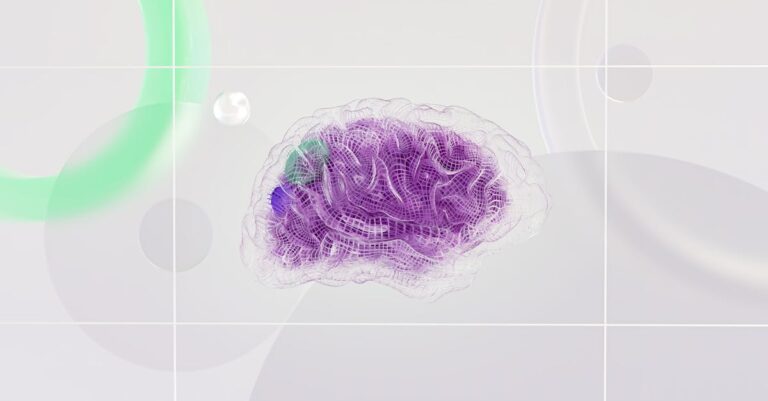
## The Static Between Stars
The chipped Formica of the diner booth felt cold under Leo Klein’s elbows. July 19th, 1985. Cologne tasted like weak coffee and regret. Rain hammered against the plate glass window, blurring Alfredstrasse into streaks of neon and shadow. He hadn’t seen a clear sky in weeks, not since the peculiar static started clinging to his instruments.
He pushed a plate of half-eaten wurst aside. The smell, usually comforting, now felt thick, oppressive.
“Another one?” Frau Schmidt’s voice, roughened by decades of cigarettes and early mornings, didn’t invite conversation.
Leo nodded, already reaching for his wallet. The diner was a refuge—a place where no one asked questions about why an astronomer spent his nights dodging rain and muttering about light. His exile wasn’t official, not in passports or paperwork. It was woven into the glances he received, the hushed tones that followed him in academic halls. Vienna hadn’t been kind.
He needed to focus. The aurora alignments. They shouldn’t exist. Not here, not with this intensity. And the poems…
He pulled a dog-eared notebook from his worn leather satchel, its pages filled with painstakingly copied Hebrew characters and German translations. Fragments. Allusions to celestial fire, weeping angels, a garden consumed by shadow. They were sourced from illicit correspondence—letters smuggled out of Vienna’s archives, penned by a man named Elias Bloch.
“Bloch thought they were warnings,” Leo murmured, tracing the delicate script with a calloused finger.
“Warnings about what?” The question startled him.
Old Man Gruber, the retired clockmaker who occupied a corner booth every evening, was watching him with eyes as sharp as polished gears.
Leo hesitated. “About… disturbances. In the natural order of things.”
Gruber snorted, a sound like escaping steam. “Natural order? That’s what they always say when something’s about to break.” He gestured with a chipped mug. “The stars don’t care for order, Herr Klein. They’re chaos in a beautiful dress.”
The diner door chimed, letting in a gust of wet air and a man who reeked of brewing hops. Herr Baumgartner, owner of one of Cologne’s burgeoning microbreweries. He slapped a damp hand on the counter, his face ruddy.
“Klein! Still chasing ghosts in the sky?” Baumgartner’s voice boomed. “You should be enjoying a good Kölsch, not worrying about… what is it now? Angel fire?”
“Auroral activity,” Leo corrected, keeping his voice low. “Unusual patterns.”
Baumgartner waved a dismissive hand. “Patterns sell beer, Klein. Not astronomical anomalies.”
He winked at Frau Schmidt. “Another one for me, please, and tell the Herr Astronomer to loosen up.”
Leo ignored him. He needed information. The letters mentioned stone markers, excavated during a frantic—and unauthorized—attempt to build a train passage under Reich Square. The project had been abandoned abruptly, flagged as structurally unsound.
“Have you… heard anything about the construction project under Reich Square?” Leo asked Gruber, keeping his tone casual.
Gruber’s eyes narrowed. “Rumors. They dug up something they didn’t like. Old stones, covered in carvings. Something… unsettling.”
“Unsettling how?”
Gruber leaned closer, his voice a low rasp. “They said it smelled wrong. Like earth that hadn’t seen the sun in centuries. And they found a monk. A silent one, apparently. Said he spoke only Arabic.”
Leo felt a chill crawl down his spine. The letters mentioned a monk, too—a shadowy figure versed in Arabic mathematics, whispering about predictive paradoxes.
“Did they say what the monk was doing?”
“Guarding something,” Gruber said, his gaze drifting to the rain-streaked window. “A secret. Or maybe… protecting us from it.”
Leo sipped his coffee, the bitter taste mirroring the growing dread in his gut. The fragments were starting to coalesce—aurora, poems, stone markers, a silent monk…
He needed to find Elias Bloch. But Vienna wasn’t welcoming.
***
The train rattled through the Rhineland, each click and clatter a reminder of Leo’s dwindling resources. Vienna loomed—a city draped in history and secrets. He’d secured a temporary position at the university observatory, a pretext for his true investigation.
The observatory was a relic—brass instruments gleaming under dusty skylights, the air thick with the scent of oil and forgotten calculations. Dr. Albrecht Vogel, his supervisor, was a meticulous man obsessed with cataloging meteor showers. He showed little interest in Leo’s “peculiar” observations.
“The aurora borealis is a fascinating phenomenon,” Vogel said, adjusting his spectacles. “But your obsession with these… linguistic anomalies is unproductive.”
Leo busied himself calibrating a spectroscope, using the opportunity to scan university records. He found Elias Bloch’s name—archivist, dismissed for “conduct unbecoming.” The file contained a single sentence: “Subject exhibited an unhealthy fixation on esoteric texts and unorthodox theories regarding celestial events.”
He traced Bloch’s last known address—a dilapidated apartment in the Josefstadt district. The building smelled of mildew and despair. A wizened woman, Frau Steiner, lived downstairs.
“Herr Bloch?” she said, peering at him with suspicion. “He left months ago. Vanished like smoke.”
“Did he say where he was going?”
“He spoke of a garden,” Frau Steiner said, her voice barely a whisper. “A hidden garden where the stars fell to earth.”
“Did he talk about any… colleagues? Anyone who visited him?”
Frau Steiner hesitated. “There was a man. A brewer, I think. He brought him bottles of… special ale.”
Baumgartner.
Leo thanked Frau Steiner and left, the city pressing in around him like a weight. He needed to find Baumgartner again.
The brewery was bustling—copper tanks gleaming, the air thick with the aroma of hops and malt. Baumgartner was overseeing a new batch, his face flushed with pride.
“Klein! Back for more ghost stories?” he boomed, wiping his brow.
“I need to ask you about Elias Bloch,” Leo said, cutting straight to the point.
Baumgartner’s jovial expression faltered. “Bloch? Why ask me about him?”
“You visited him,” Leo stated, watching for a reaction. “You brought him ale.”
Baumgartner sighed, gesturing towards a back room cluttered with barrels and crates. “Alright. Come this way.”
He poured two glasses of dark ale, the liquid shimmering in the dim light. “Bloch was… a friend. A brilliant man, obsessed with ancient texts.”
“What kind of texts?”
“Hebrew liturgical poems,” Baumgartner said, his voice low. “He believed they contained warnings about… something coming.”
“What kind of ‘something’?”
Baumgartner hesitated, glancing around nervously. “He said the Emperor was searching for a solution.”
“A solution to what?”
“Crop mutations,” Baumgartner said, his voice barely a whisper. “The harvests are failing. The Emperor believes there’s something wrong with the earth itself.”
“And Bloch believed the poems held a clue?”
Baumgartner nodded. “He thought they were connected to an ancient garden, a place where the stars fell to earth and poisoned the soil.”
“He mentioned automata,” Leo said, recalling Frau Steiner’s words. “And the use of them in observatories.”
Baumgartner stiffened. “He was fascinated by clockwork, intricate machines… He believed they could be used to predict the patterns.”
“What patterns?”
Baumgartner’s eyes darted around anxiously. “The aurora,” he said, his voice barely audible. “He thought they were a symptom… of something awakening.”
***
The rain had stopped, leaving Vienna shimmering under a bruised sky. Leo stood in the abandoned Reich Square train passage, the air thick with damp earth and a subtle metallic tang. The stone markers were there—massive blocks covered in intricate carvings, their surfaces slick with moisture. He traced the symbols with his fingers—geometric patterns interwoven with Hebrew characters, unsettlingly familiar from Bloch’s notes.
He found the chamber—a circular room carved deep beneath the city. In the center stood a massive clockwork automaton, its gears frozen in place, covered in layers of dust and grime. Its brass limbs were sculpted with unsettling precision—a grotesque mockery of human form.
He recognized the design—it was based on sketches Bloch had shown him, inspired by ancient Arabic texts. The automaton wasn’t designed to observe the stars—it was designed to *manipulate* them.
A figure emerged from the shadows—Dr. Albrecht Vogel, his face pale and drawn, holding a strange device resembling a tuning fork.
“So, you found it,” Vogel said, his voice devoid of emotion. “The Key.”
“What is this place?” Leo asked, keeping his voice steady.
“A prison,” Vogel said, gesturing towards the automaton. “For something ancient and terrible.”
“What are you talking about?”
Vogel sighed. “The Emperor isn’t searching for a solution to crop mutations,” he said, his voice low. “He’s trying to contain a disaster.”
“What disaster?”
“Generations ago, a meteor shower struck this land,” Vogel said. “The impact wasn’t random. It was… targeted.”
“Targeted by whom?”
“A celestial entity,” Vogel said, his voice barely a whisper. “An intelligence that predates humanity.”
“It corrupted the soil, poisoned the crops,” Leo said. “And the automaton…”
“Was designed to counteract its influence,” Vogel finished. “To restore balance.”
“But it’s not working,” Leo said, noting the corroded gears and broken mechanisms.
“It requires a specific alignment,” Vogel said, holding up the tuning fork. “A resonance frequency that can only be achieved by channeling the aurora.”
“You’ve been using it,” Leo realized. “That device… it’s disrupting the natural patterns.”
Vogel nodded, his eyes glittering with fanaticism. “The Emperor believes it’s the only way to save humanity.”
“But you’re making things worse,” Leo argued. “The poems warned about disrupting the balance.”
“The Emperor is a pragmatic man,” Vogel said, his voice cold. “He won’t risk inaction.”
Suddenly, a low hum filled the chamber—the automaton shuddered to life, its brass limbs creaking and groaning. The air crackled with energy—the stone markers began to glow, their carvings pulsing with an eerie light.
“You’ve activated it,” Leo said, his voice tight. “What have you done?”
“I’ve restored the Key,” Vogel said, his eyes fixed on the automaton. “The balance will be restored.”
But as the machine whirred and clicked, Leo noticed something terrifying—the aurora in the sky was changing. The patterns weren’t stabilizing—they were unraveling, twisting into chaotic spirals of light and shadow.
He remembered Bloch’s final warning—the garden wouldn’t be saved by force, but by understanding. The entity wasn’t a threat to be contained—it was a consequence of imbalance, a celestial wound that needed healing.
He lunged for the tuning fork, wrestling it away from Vogel. The machine shuddered violently—the light intensified, threatening to overwhelm them both.
He struck the tuning fork against a stone marker—a discordant note reverberated through the chamber, disrupting the machine’s frequency. The light flickered—the automaton groaned and sputtered, its movements becoming erratic.
Vogel screamed—lunging for the device. Leo dodged his attack, striking the tuning fork against another marker—another discordant note shattered the machine’s rhythm. The light dimmed—the aurora in the sky began to stabilize, its patterns shifting into a calming spiral.
The machine finally ground to a halt—its brass limbs frozen in place, its gears silent. The light faded—the stone markers dimmed, their carvings losing their eerie glow.
Leo collapsed against a wall—exhausted, his ears ringing. The air smelled of dust and ozone.
Vogel lay on the floor—defeated, his eyes filled with despair.
“You’ve doomed us all,” he whispered. “You’ve unleashed the entity.”
Leo looked up at the sky—the aurora shimmered above them, its patterns calming and serene. He felt a strange sense of peace—a feeling that the balance had been restored, not by force or control, but by understanding and acceptance.
The garden wouldn’t be saved—it would evolve. A wound healed, leaving a scar. The entity wasn’t a threat, but a consequence—a reminder of the delicate balance between humanity and the cosmos. The rain began to fall again—washing away the dust and grime, cleansing the city. He breathed in deep, ready to face whatever came next. The static between stars had subsided—replaced by a quiet hum of hope, a promise and challenge in the darkness.


